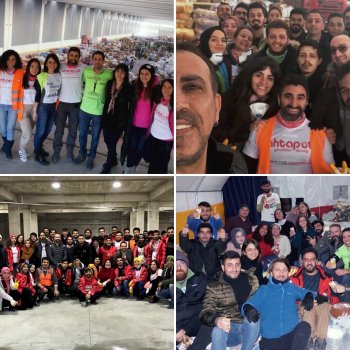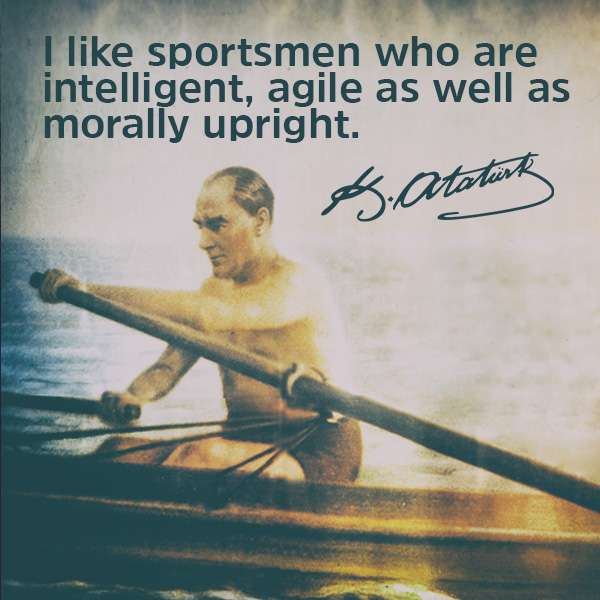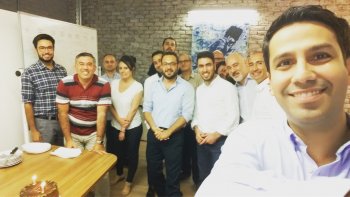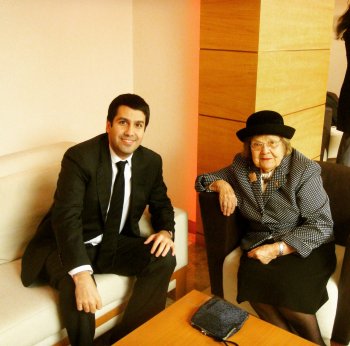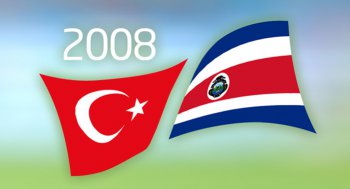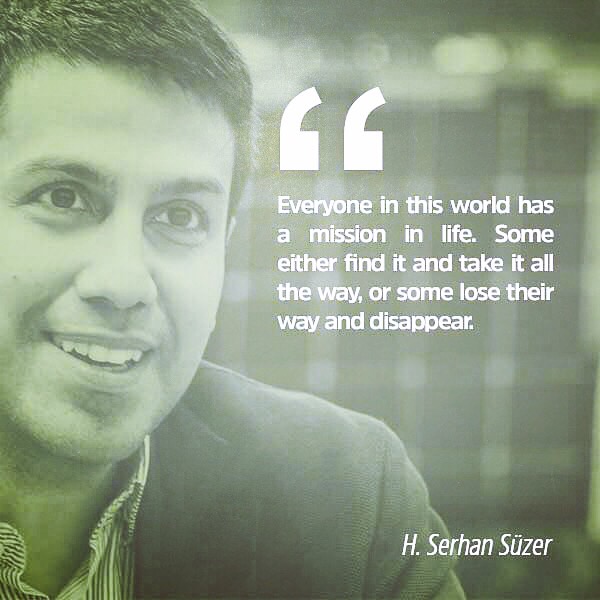“Ego” will the end of us!

Our country’s unsuccessful run in the 2016 European Football Championship has caused me once again to think about the underlying ego issues behind this poor performance. I’ve always observed that from football to academia, and from the business world to daily life, displays of an inflated ego are at odds with true strength. In this week’s piece, I present situations I have experienced to prove my point.
I have been watching the European Championship matches in recent days. The sterile and tedious action on the pitch paired with the poor performance and lack of spirit of the Turkish team meant I was not particularly motivated to watch many matches. Compare that to the joyous excitement of the 2002 World Cup in which our national team placed third in the world, or to the European Championship in 2008 in which we advanced to the semifinals. Other than a lack of fighting spirit, this year’s championship was marked by unfortunate comments resulting from over-confidence (for example: “This isn’t over until we say it’s over”), disagreement within the team, technical director Fatih Terim’s now all too familiar attitude (beautifully parodied, such as in this Ata Demirer video: https://www.youtube.com/watch?v=Mn2d9xQB-Kw) and arguments over the formation of the team. In this post I’ll show how ego problems of various kinds manifest themselves in Turkey and how they’ve reached as far as the national team.
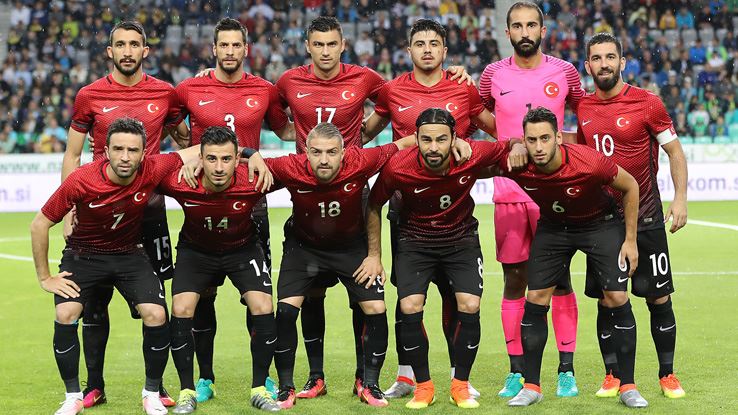
The Turkish National Team for the 2016 European Football Championship
Let’s not mince words. Despite the spiritless performance in this year’s tournament, the national team is not as bad as it was during my childhood. I don’t know if you’re old enough to remember, but back then we were so resigned to failure that we rejoiced if our team lost by a small margin. Fortunately, my generation’s inferiority complex, in which we’d say, “We lost, but we weren’t crushed,” is now a thing of the past. I have vivid memories of what it was like back then.
For example, from the ages of 11 to 16 I went to summer school in England. I can say that those summers were the most enjoyable of my entire youth. In those years, I remember being beat by England 8-0. As we settled in to watch a match against a European team – particularly from Italy and Spain – we’d joke, “Let’s see how much they beat us by in this match.” This joking around naturally affected our sense of confidence and made us even more determined, fierce fans when we watched a match. I also remember periods in which we won all our matches or in which we lost to those who ridiculed us by a slim margin like 4-5.
From a couple of guys passing a ball to a real soccer pitch…
Actually, since the founding of the Republic my generation has been one that has taken Turkey to the next level in a number of areas, including sport. I’ll give another example, this one from my university years. During one of my summer breaks I went to Harvard University to take macroeconomics and advanced algebra classes for which I received credit at the university I was attending in Canada. I had two roommates at Harvard. One was a computer engineer named Peter, an endearing almond-eyed guy with a southern accent I’d chat with when I had the chance, but who was almost always in the computer lab. My other roommate was Austin, a tall good-looking guy who played pro soccer in Colorado. Austin and I always hung out together. When we learned shortly after we met that we both shared a passion for football we found a ball and started playing together in Harvard Yard. When others saw us playing they joined in. By the end of the first day we had 6 or 7 people. We had an even bigger crowd the next day, and the numbers only grew. Austin and I got a reputation as the football players. Whenever anyone wanted to play they would call us. By the end of the first of my two months at Harvard, there were too many of us to squeeze into the Yard and we began to organize tournaments at a real pitch on the other side of the river in Boston. It was great fun. One day Austin asked me:
“Serhan, we’ve been playing football for a month and I’ve told you where I play, but you never talk about your career. Where do you play?”
I was in a joking mood, so I told Austin I played for Galatasaray’s PAF team. “I can tell,” he replied. I just smiled. In fact, I had no professional experience. Mostly, I had just kicked around a ball with my twin brother or played with the local kids in the streets of Bebek where I grew up. Strictly for fun, I had also played on my high school team. There is nothing professional about my experience with or approach to football, but, as an amateur, I am passionate about the sport and give it all I’ve got.
My generation’s success in football
That summer in America I was suddenly regarded as something of a “star” at my level of football. Although I’d played defense in high school, in the matches in America I moved right to center position and was effectively the team captain. I also have to allow that I improved greatly due to the frequency of our matches and practice sessions. I was known at Harvard as the Turk who was good in football. A few days after I’d fibbed to Austin, I brought up the subject again and admitted I’d been pulling his leg about my football experience. At first he didn’t believe me. After I repeatedly assured him it was the truth, he said: “Well then, how can an amateur play this well? I can’t be because of the level of play in Turkey, for we all see how poorly Turkey does in tournaments.” I instinctively sprang to my country’s defense by saying, “It’s true that the Turkish national team hasn’t done well in any tournaments, but that doesn’t mean they never will. You’ve seen how I play. I’m not all that good compared to those of my generation. I suggest you watch how Turks my age play. We’ll be successful in future tournaments.” My words proved to be prophetic. Galatasaray first won the UEFA cup and then the Super Cup, and the Turkish National Team placed third in the world. The players were all from my generation.
These are all cherished memories. I’m sure that as Turkish football has gone from strength to strength Austin has remembered what I told him way back then. Actually, we shared a lot more than football. In my room Turkish culture was also experienced and the answering machine even played Yonca Evcimik’s “8:15 Vapuru.” As you can imagine, people calling from Colorado and Texas wondered what the heck kind of music they were hearing.
Blank, prejudiced stares…
As I was enjoying my time at Harvard focusing on both my lessons and football and studying with a group of international friends, there were, for some reason, almost no Turks in my circle. I remember the first time I met some other Turkish students. It was truly hilarious. They were all asking each other where they had gone to school. I don’t remember the details, but schools like Robert College, the German High School and the Austrian High School were mentioned. When I said I had attended Kemal Atatürk High School in Tarabya they all fell silent. You should have seen the look on their faces as they wondered how someone who had gone to a “normal” school had ended up at Harvard! They probably talked about me later, behind my back. Some of the Turks I mentioned were fine people with whom I’m still in touch, but I ran with a different crowd at Harvard. There were also others who went to the best schools, work at top international companies and, in my opinion, remain vapid people who have done nothing with their lives. Compare them to those whose schools are not renowned but have lived rich, full lives, struggled and achieved, and are now highly skilled and talented. School doesn’t make the man is something I’ve always said. I myself studied at one of the best schools in Canada but I never though it gave me bragging rights or made me superior to others. I’ll say it again: what’s important is what you’ve done with your life. That’s why I poke fun at those whose egos are inflated merely because of where they went to school or where they work.
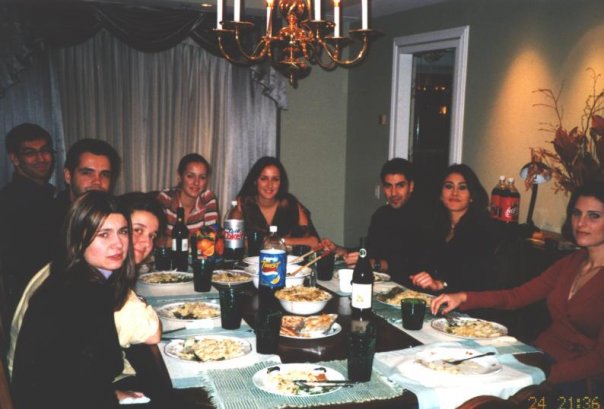
A photo from my university days
Overall, I can say that my time at high school and university was pleasurable. Once I’d begun “real” life, however, things began to change. Like it or not, you grow up and take on more responsibility. I tried throughout to remain true to myself. That’s why whenever I meet up with old friends, even from elementary school, they always say the same thing: you haven’t changed a bit. When you’re true to yourself, know yourself and have faith in your own ability, there’s no need to embark on various projects and adventures to boost your self-esteem.
“Moving egos” and arabesque
Let me give you an example of what I mean by attempts to boost self-esteem. Most Turks are sensitive when it comes to cars. People I know well and those I don’t know so well claim that cars are important when in terms of projecting a certain image. I’ve never believed that. Any time I evaluate someone I consider their intelligence and what in Turkey call “culture,” which can include everything from manners to having discerning taste. I’ve always admired people who are clever, creative, practical, possessed of a high emotional IQ, well-educated and cultured. It doesn’t matter what kind of car these people drive. What matters is how they carry themselves, not how they are conveyed. I don’t want to insult anyone, but I’ve always seen cars as nothing more than a “moving ego.” You can find the most worthless people in the most expensive cars, or extremely valuable people in a car to which nobody gives a second glance. I’m making a sweeping statement here and I do exempt those who simply derive a great deal of pleasure from driving a well-engineered and -designed car. Some people drive as a hobby. I understand that they would drive the best car they could, but if they regard is as a question of prestige then I think less of them.
Let me give you another example. Even back when I was General Manager of Süzer Holding I drove a Ford Focus for 5 years. Despite my being perfectly happy with my car they insisted I drive a more upscale one, and I relented. I had really been enjoying that Ford Focus, would take it to upscale restaurants, hand the keys to the valet and say, “Park it in a good place.” The valets and security people knew me and knew I was joking. They’d laugh and park my car in front of the restaurant with the Ferraris and Porsches. In a sense I was protesting this culture of ostentation – what we in Turkey call “arabesque” –and they were helping me to do it. This has nothing to do with being stingy or miserly. If I’d wanted to I could have brought the flashest car around. This is about taking a stand.
I actually take pleasure in driving a nice car. For the past 3 years I have been driving a Renault Fluence because it is 100% powered by electricity. There aren’t many people in Turkey who have opted for such a car (and some have bought one after seeing mine). In the name of sustainability, I have been using this car for the past 3 years. I am prepared, though, to upgrade to a Tesla as a reward to myself if I achieve certain career objectives I’ve set. I’ve already test-driven a Tesla and it’s a great ride.
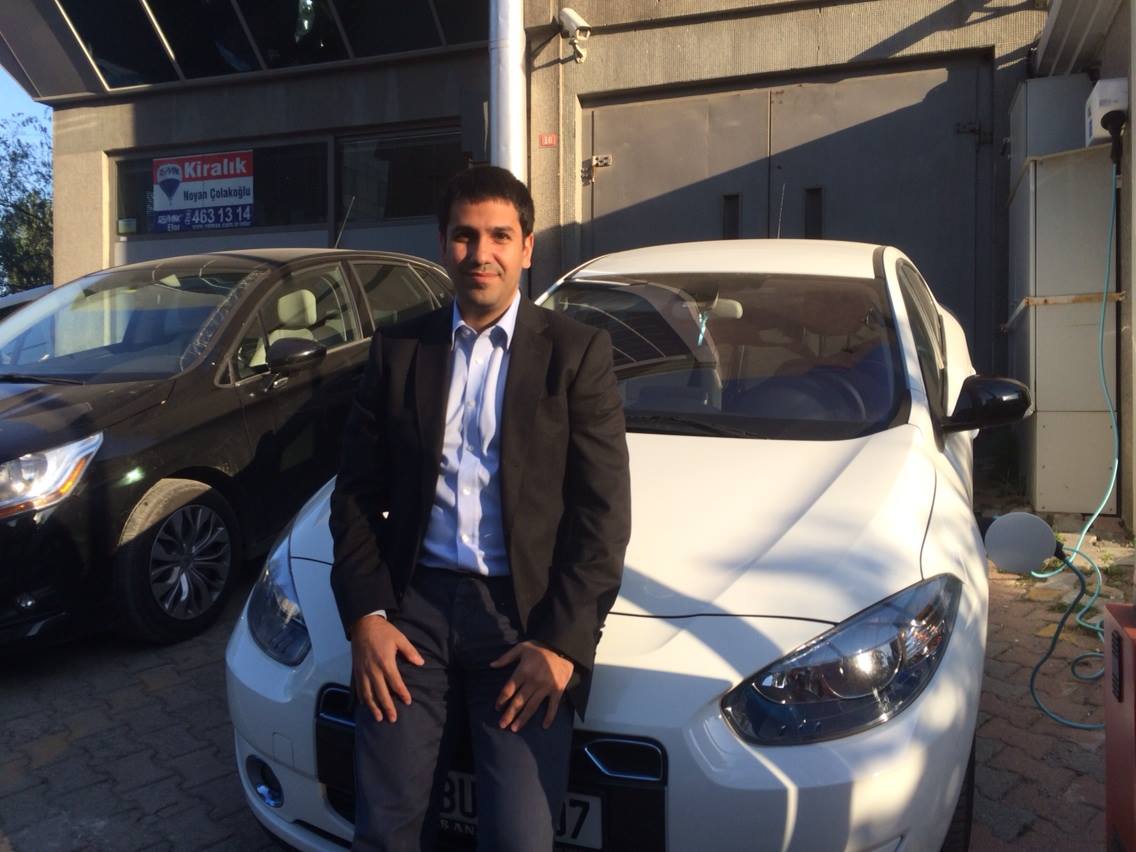
A photo of my 100% electric Renault Fluence soon after I bought it
A gift’s real value
Here’s another example of what I mean by taking a stand. The giving and receiving of gifts is very important in our culture. I myself tend to function on functionality when shopping for a gift. It should be useful in addition to looking good. One day, for a close friend, I got a set of plates featuring the paintings of Turkish artists. Plates can always be used and I knew that the recipient of the gift was interested in art. It seemed like the ideal gift, but I was disappointed when I later learned that the person I gave it to didn’t like it. For me, if the person getting the gift is a valued friend, the gift is also valuable, even if it is a matchbox. It shouldn’t matter if the gift is a plate, a matchbox or a jewel; what’s important is that someone thought of you. You can feel valuable without getting a valuable gift. One of my favorite gifts is a book. If I learn something from that book, what could be better?
For those who tend to be dissatisfied with gifts they receive, I have something to say: The ego says everything must be just as I want, and only then will I know peace. The soul says that if you are at peace you will find everything is just as you want.
That said, I have bought expensive gifts just as a reaction. Still, it seems to be that someone in a true position of strength knows that, and has no need to lord it up over others and feed his own ego. When I studied martial arts like karate and kick-box I was exposed to Far Eastern philosophy. Professional martial arts practitioners never brawl. They avoided getting dragged into a physical confrontation even if provoked because they know their potential opponent is weaker than they are. But if a certain line is crossed and they are compelled to fight, they will employ all their skills and let their opponent have it. Underlying my feelings about expensive gifts and my hesitation to show off is this approach.
Those who know me well know that I strive to be modest in my dealings with others and take care not to offend anyone. In Turkey, though, modesty is often misinterpreted either as a show of weakness, or as an invitation to become overly familiar. When I find either of those things happening, I employ a few words to set that person straight and then continue on more solid footing.
The authoritarian state
Ego issues can be found all across the country. Those granted a little power tend to exercise it immediately on whomever they can. A few years ago, when I was returning from Baghdad to Istanbul’s Atatürk Airport, I was subjected to additional security measures for the first time in my life. We were herded into a glass-enclosed room right near the runway. Naturally, after we had been held there for over 45 minutes my fellow passengers began to voice their protests. Can you imagine? You return from a stressful place like Baghdad only to find that the moment you step off the plane and into your own country you are made to wait in a glass box for 45 minutes! One of the passengers started yelling at a policeman, as follows:
-You can’t hold us here like this. You have no right.
-Calm down, sir. This is a routine procedure.
-It’s not routine. You’re doing it because we’ve just arrived from Baghdad. I’m a businessman. If I weren’t willing to go to a dangerous place like Baghdad to earn an income that is then taxed in this country, the state wouldn’t be able to pay your wages. You have no right to treat us like this!
I’d never heard anyone say anything like that. Upon reflection I realized the guy had a point. We are so accustomed to the idea of an autonomous, authoritarian state that its employees have always been free to impose on us. In fact, the people of this country are the ones who set up the state so that the country would be administered properly. State salaries are paid with our taxes. It is the state’s basic duty to provide basic societal needs such as security, justice, healthcare and education. None of this means that the employees of the state are superior to the people of this country. We are all striving to make this country of ours a better place.
Let me move on to the recent attack at Atatürk Airport. I could have been there when the attack took place. I’d asked for an indirect flight to Vienna via Istanbul, and grumbled a bit when my assistant arranged a flight late at night via a different city, even as I told myself some good may come of it. The bombs went off right at the entrance I always use. Our lives are precarious. Life goes on in Turkey, land of the super ego, but we cannot pretend as though nothing has happened.
As I was speaking along with the Moroccan Minister of Energy at the Crans Montana Forum in Vienna, I brought up the fact that the tragic events that had just happened in Istanbul were now taking place all over the world, and called for all countries to unite to address global terrorism and immigration issues. “Enough!” I said, as I listed some of what I think should be done: “We are compelled to ensure that people are happy in their own countries, to teach people tolerance, and to provide a good education that includes universal values.”
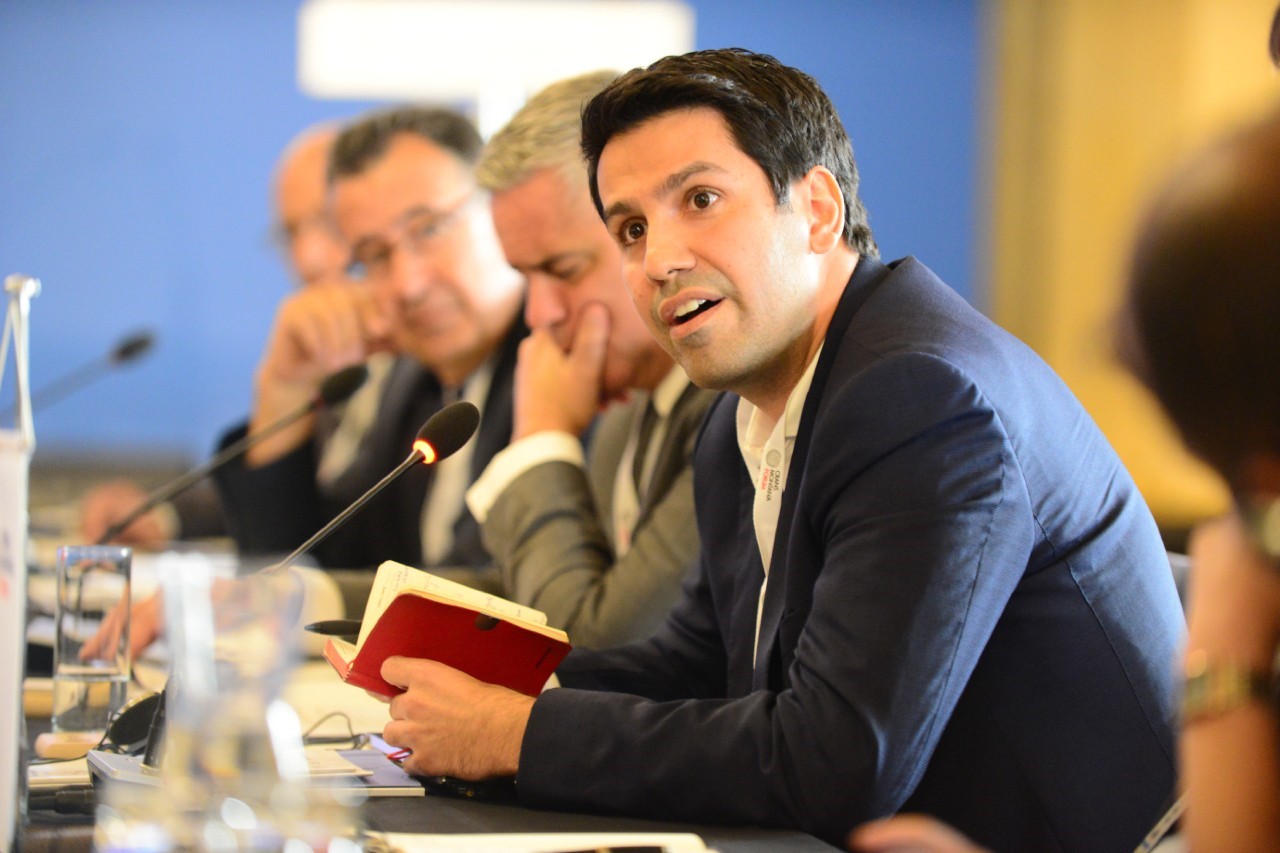
Speaking in Vienna at the Crans Montana Forum
We all need to pitch in to make this happen.
Let me take this opportunity to offer my condolences to the families of those killed at Atatürk Airport. Stay well and stay safe!
Tag: eğitim


